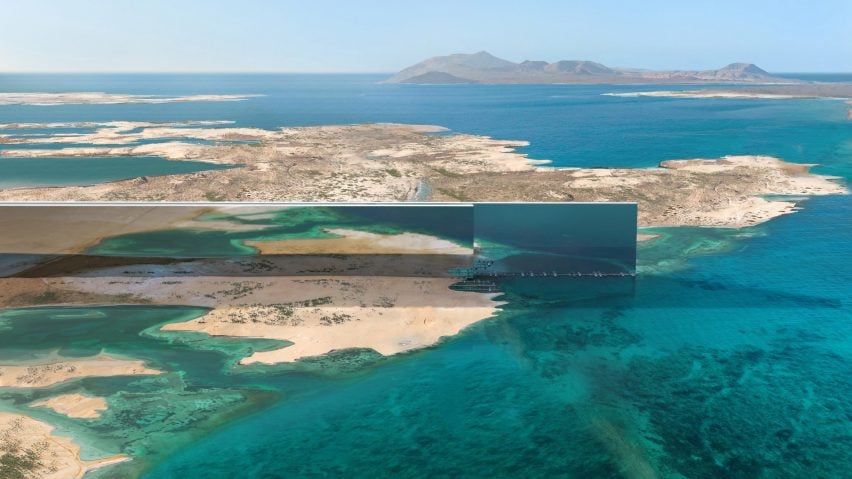
The most-read architecture and design stories of 2022
To conclude our review of 2022, Dezeen editor Tom Ravenscroft takes a look back at this year's biggest architecture and design stories, including The Line, the Vulva Spaceship and the World's skinniest building.
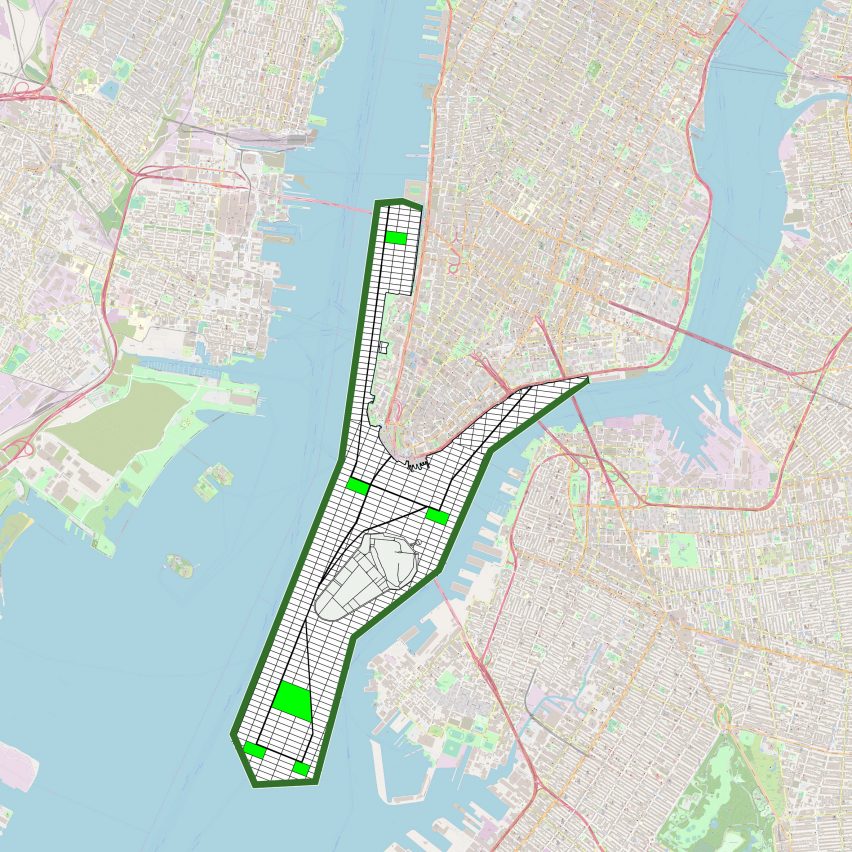
January – Manhattan Island extension could provide homes for 250,000 people
The year began with a speculative proposal to add 1,760-acres of reclaimed land to the tip of Manhattan in a bid to provide New York with additional housing while combating climate change.
Named New Mannahatta, the plan from Rutgers University professor Jason Barr would see Manhattan Island extended into New York Harbor to incorporate Governors Island and provide land for 180,000 new homes.
Barr followed up the proposal by saying that "we need to overcome our deep-seated phobia of major projects", in an opinion piece for Dezeen.
Read more about the proposed Manhattan Island extension ›

February – MIT engineers invent plastic that is stronger than steel
In February, news of a new type of plastic that is twice as strong as steel was the month's most-read article. Invented by Massachusetts Institute of Technology (MIT) chemical engineers, the material is light and mouldable like plastic but has a strength and resistance that is closer to steel.
The material's properties mean that its inventors envision it being used as a coating to improve objects' durability and, in the long term, as a structural material.
Read more about the plastic that is stronger than steel ›
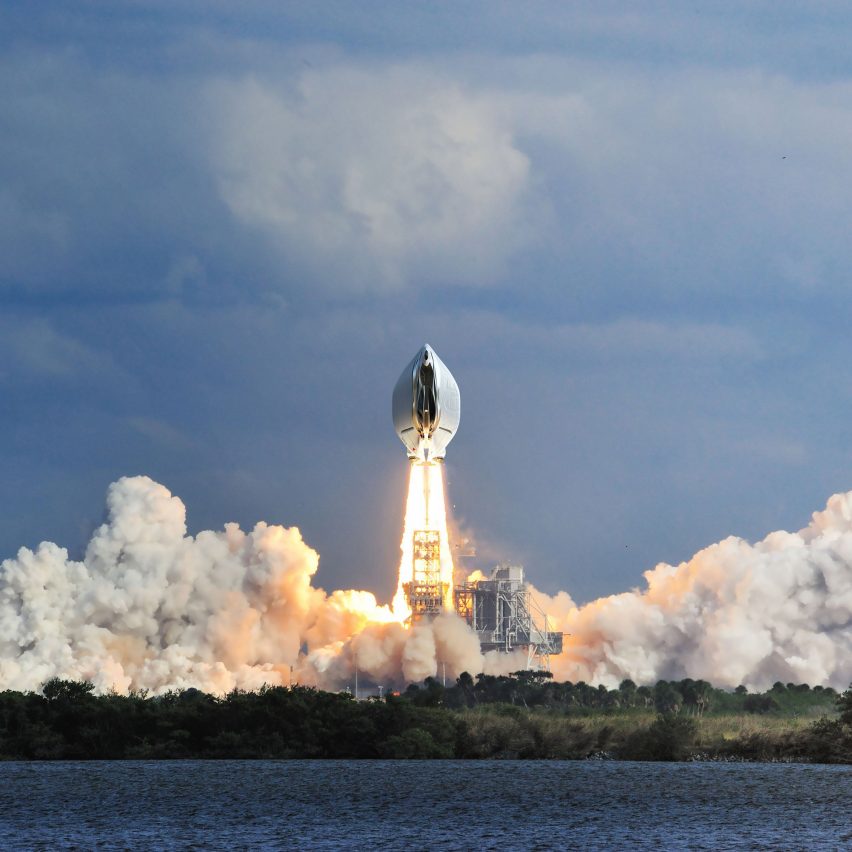
March – Vulva Spaceship aims to counter prevalence of phallic spacecraft
German feminist art group Wer Braucht Feminismus? revealed a vulva-shaped spaceship concept in March and the yonic craft became the month's most-read piece.
According to the group, the concept was created to challenge the convention of phallic spacecraft design and "restore gender equality to the cosmos".
Read more about Vulva Spaceship ›
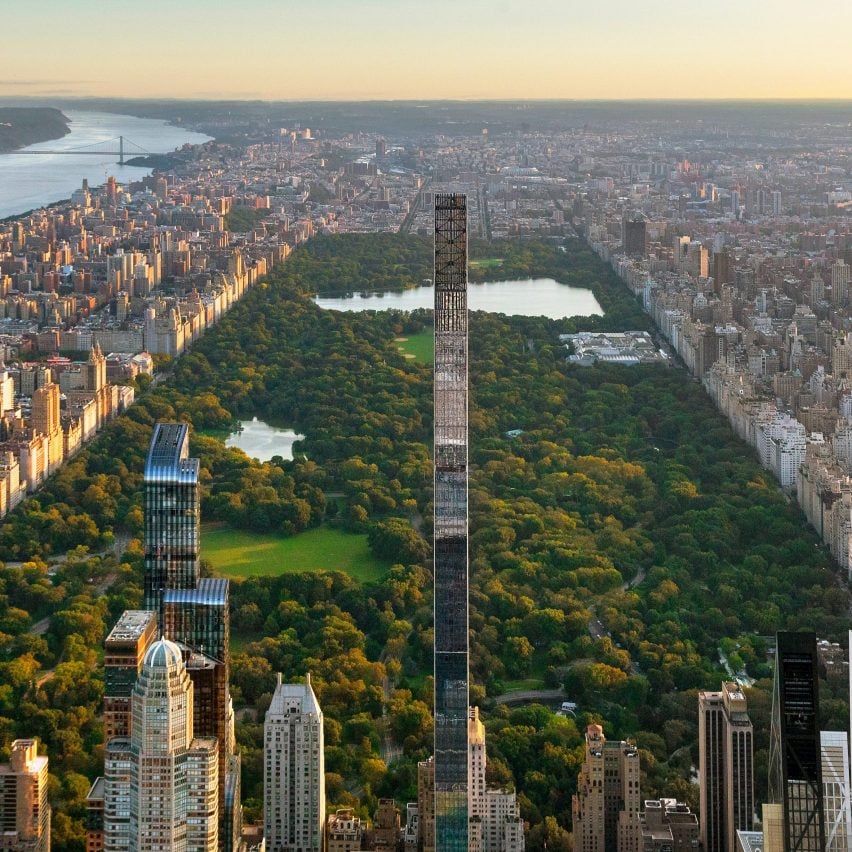
April – World's skinniest skyscraper by SHoP Architects completes in Manhattan
One of the world's most anticipated and opinion-dividing buildings completed in April.
SHoP Architects' supertall skyscraper 111 West 57th Street in New York City is both the world's skinniest and the second tallest building in the Western Hemisphere. News about the 1,428-foot-tall (435-metre) tower's completion was also the most-read article in April.
Read more about the world's skinniest skyscraper ›

May – MIT engineers build load-bearing structures using tree forks instead of steel joints
A second appearance from MIT in this year's most-read list came in May when Dezeen reported on research indicating that discarded tree forks could replace load-bearing joints in architecture projects.
The construction technique, developed by the Digital Structures research group at MIT, combines generative design and robotic fabrication to allow tree forks to be used as Y-shaped nodes in building projects.
Read more about the load-bearing tree forks ›
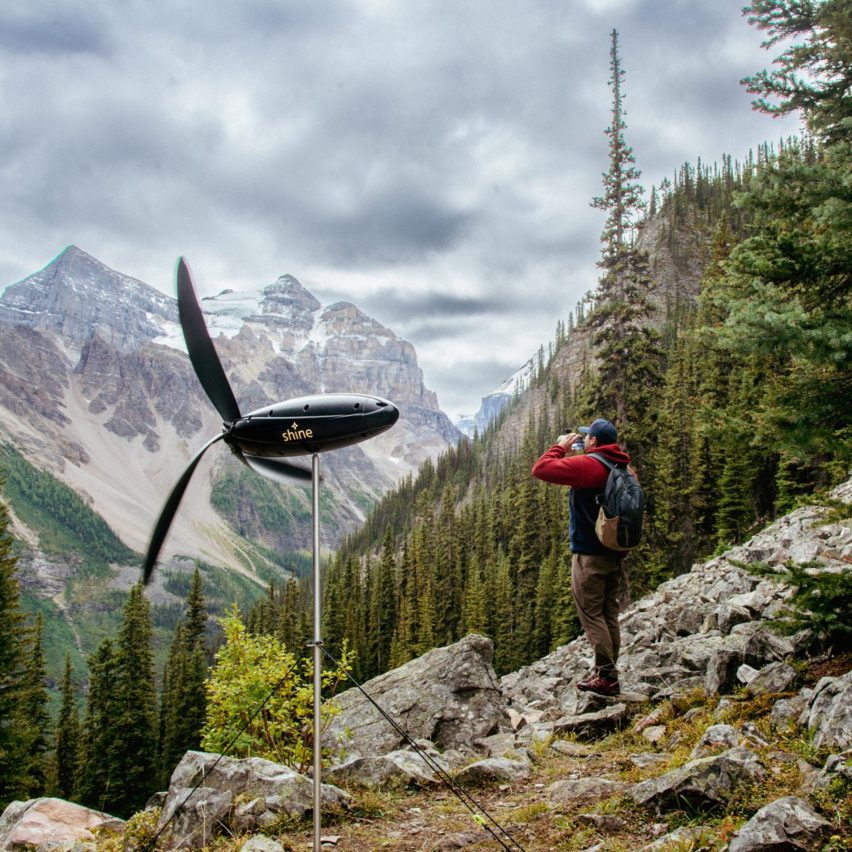
June – Fold-up Shine Turbine offers "wind power that fits in your backpack"
Canadian start-up Aurea Technologies launched a portable wind turbine in June to provide reliable, renewable energy on the go.
The turbine, which compacts down to the size of a water bottle, was the month's most-read article.
Read more about Shine Turbine ›
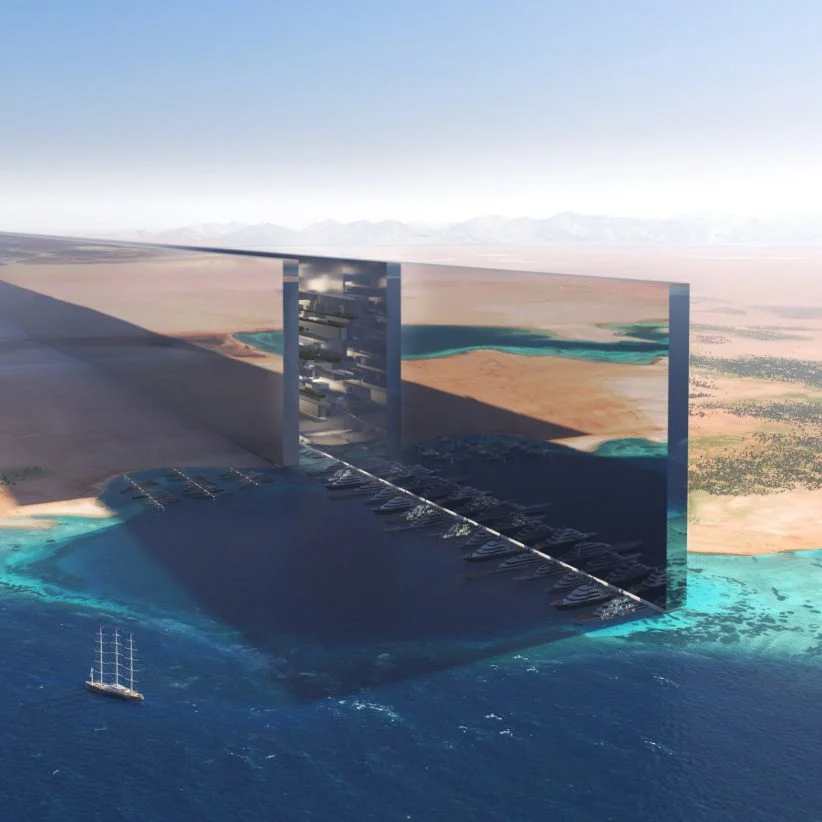
July – Saudi Arabia reveals 170-kilometre-long mirrored skyscraper to house nine million people
July saw the year's biggest architecture story break when the Saudi Arabian government revealed visuals of a 170-kilometre-long skyscraper-city that is being planned as part of the Neom development.
Designed by US studio Morphosis, the 500-metre-tall linear city will be named The Line and will stretch across the northwest Saudi Arabian desert.
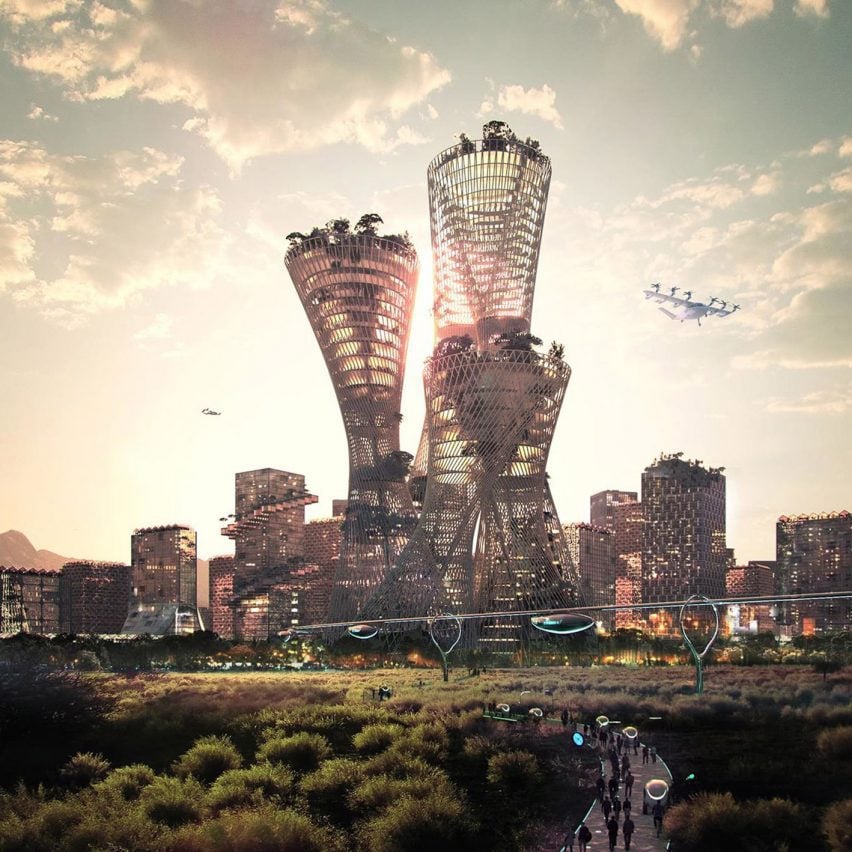
August – Ten futuristic cities set to be built around the world
Following the unveiling of The Line, we looked at 10 futuristic cities that are currently being planned across the globe, including the Telosa development being designed by Danish architecture studio BIG (above).
Along with BIG, studios including Foster + Partners and OMA are masterplaning futuristic urban centres, which often claim to be designed with a focus on sustainability.
Read more about the futuristic cities being built around the world ›
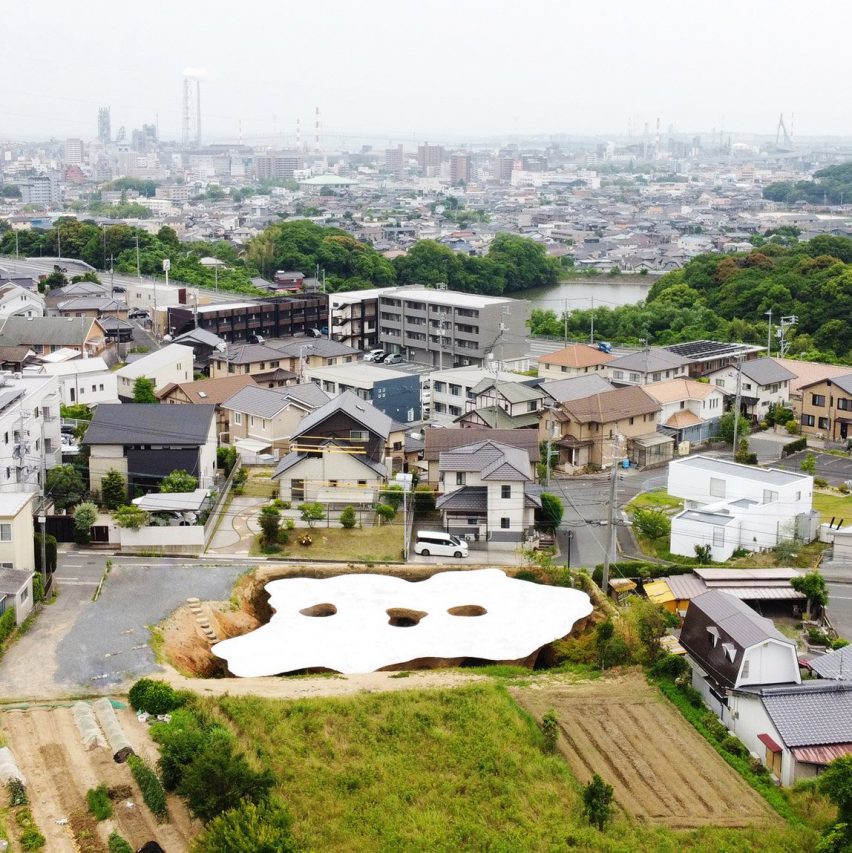
September – Junya Ishigami hides mud-covered house and restaurant below ground level in Japan
In September, an incredibly unique house was the focus of the month's most-read piece. Designed by Japanese architect Junya Ishigami, the home and restaurant for Japanese chef Motonori Hirata is located entirely underground.
It was created by pouring concrete into holes in the ground, which were then excavated around to create the home's living spaces.
Read more about Junya Ishigami's underground home ›
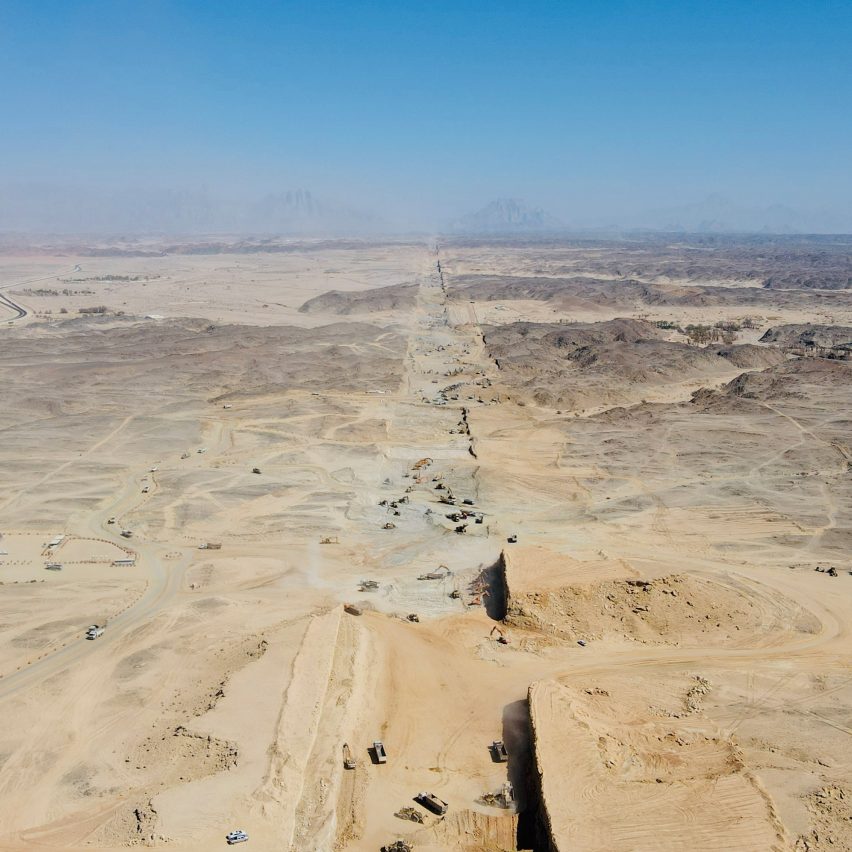
October – Drone footage reveals The Line megacity under construction in Saudi Arabia
The Line was back in the news in October, with drone footage showing that work had commenced at the site becoming the month's most-read story.
Shot by aerial photography company Ot Sky, the footage shows numerous excavators digging a wide linear trench in the desert for the foundations of the city.
The footage was released shortly after we reported that three men forcibly evicted from the Neom site had been sentenced to death, according to human rights organisation ALQST.
Read more about The Line drone footage ›
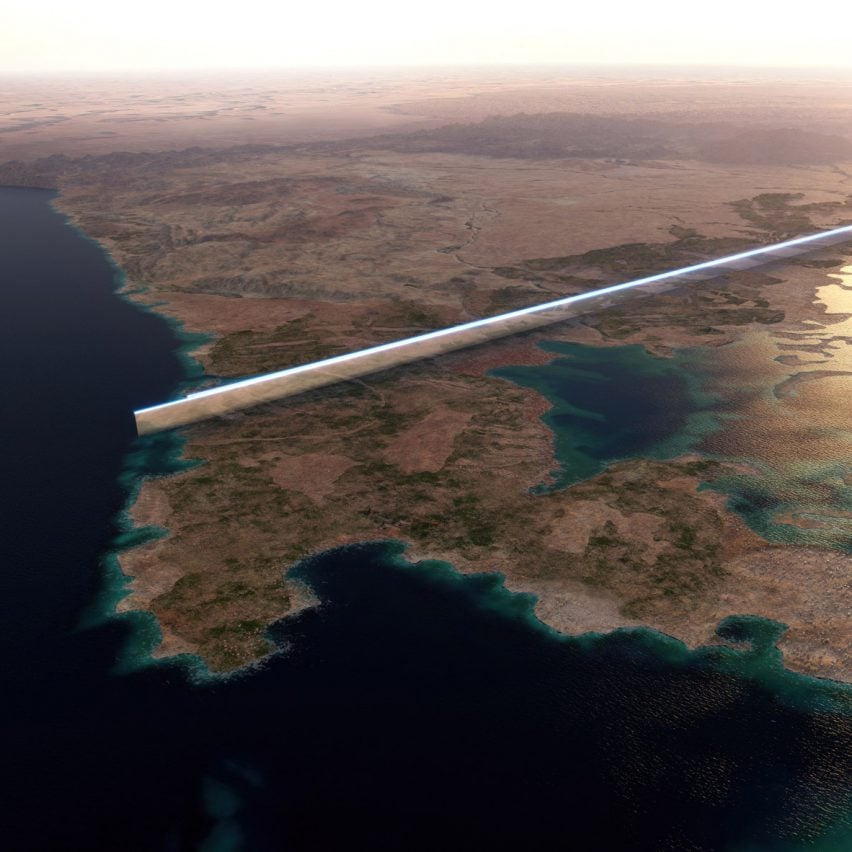
November – "All those complicit in Neom's design and construction are already destroyers of worlds"
Following the footage of The Line and news of reported human rights abuses, Adam Greenfield wrote an opinion piece questioning whether the architects working on Neom are content to be complicit in an "ecological and moral atrocity".
"All those complicit in Neom's design and construction are already destroyers of worlds," he wrote.
Read Greenfield's opinion piece ›
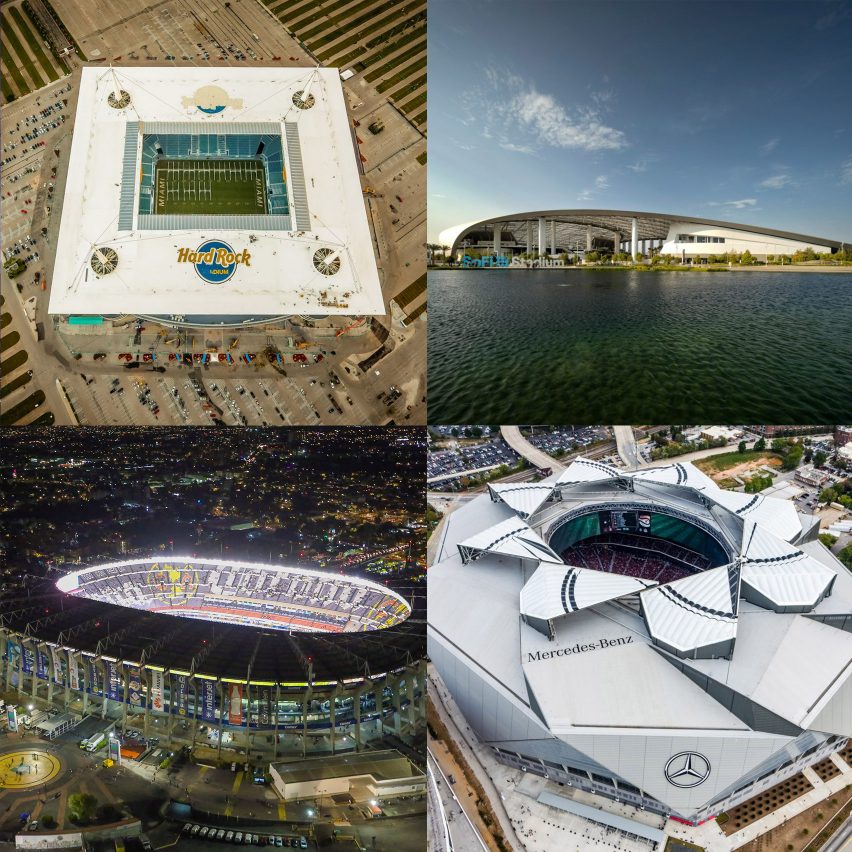
December – Sixteen stadiums set to host games at the World Cup 2026
The end of the year saw the first winter World Cup take place in Qatar, where seven new stadiums were built to host the tournament.
At the end of this year's World Cup we looked ahead to the next tournament and the 16 stadiums in the USA, Mexico and Canada that will host games in 2026 – all of which are already built.
Read more about the 2026 World Cup Stadiums ›